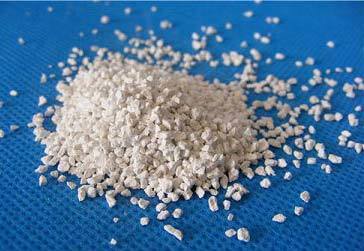20
2025
-
02
Understanding the Density of Calcium Hypochlorite: Key Facts and Applications
Calcium hypochlorite (Ca(OCl)₂) is a highly effective oxidizing agent widely used for applications such as water purification, pool sanitization, and industrial disinfection. Its ability to release chlorine makes it a popular choice for maintaining clean and safe water. Understanding the physical properties of calcium hypochlorite, including its density, is essential for proper handling and effective usage. In this blog, we will dive into the density of calcium hypochlorite, why it matters, and how it impacts its storage and application.
Understanding the Density of Calcium Hypochlorite: Key Facts and Applications

Introduction: What is Calcium Hypochlorite?
Calcium hypochlorite (Ca(OCl)₂) is a highly effective oxidizing agent widely used for applications such as water purification, pool sanitization, and industrial disinfection. Its ability to release chlorine makes it a popular choice for maintaining clean and safe water. Understanding the physical properties of calcium hypochlorite, including its density, is essential for proper handling and effective usage.
In this blog, we will dive into the density of calcium hypochlorite, why it matters, and how it impacts its storage and application.
What is Density, and Why Does it Matter for Calcium Hypochlorite?
Density is a measure of the mass of a substance per unit volume. For calcium hypochlorite, knowing its density helps in determining how much of the chemical is needed for various tasks like disinfecting water or maintaining a swimming pool. The density of a chemical like calcium hypochlorite can affect its storage, handling, and the dosage required in various applications.
The typical density of calcium hypochlorite is about 2.35 g/cm³. This means that calcium hypochlorite is relatively dense compared to other common chemicals, and understanding this property is important for safe and effective use.
Density of Calcium Hypochlorite: Key Factors to Consider
Several factors influence the density of calcium hypochlorite, including its form (solid or granular), purity, and moisture content. The standard density of calcium hypochlorite tablets or granules is typically around 2.35 g/cm³, but slight variations can occur depending on manufacturing processes and the specific product type.
Why Density Matters:
Volume and Dosage Calculation: The density of calcium hypochlorite directly influences how much material you need to achieve the desired chlorine concentration in water. A higher density means you can use a smaller volume of material to reach the required dosage.
Storage and Handling: Calcium hypochlorite's relatively high density means that larger quantities of the chemical can be stored in smaller containers, making it easier to transport and manage. However, it also requires careful handling due to the potential for hazardous reactions if not stored properly.
Water Treatment Efficiency: The density helps determine the amount of calcium hypochlorite needed for various water treatment purposes. For example, in pool sanitation, knowing the density of calcium hypochlorite ensures that the correct amount is added to the water without overloading the system with excess chemicals.
Applications of Calcium Hypochlorite and the Role of Density
Pool Sanitation: Calcium hypochlorite is commonly used to disinfect swimming pools. Its high density allows it to be stored and transported easily while ensuring effective chlorine release when dissolved in water. Correct dosage based on density helps maintain optimal pool water conditions.
Water Purification: In emergency situations or in regions without access to clean water, calcium hypochlorite is used to disinfect drinking water. Its density ensures that the chemical can be dissolved efficiently and deliver the necessary chlorine levels to kill bacteria and pathogens.
Industrial Disinfection: Calcium hypochlorite is also used in industries to clean equipment and sterilize water systems. The correct understanding of density ensures that precise amounts of the chemical are used to maximize effectiveness and minimize waste.
How to Calculate the Amount of Calcium Hypochlorite Based on Density
To determine the required amount of calcium hypochlorite for a specific application, use its density in calculations:
Find the volume you need:
Use the formula .
Determine the required mass:
If you know the volume required, multiply it by the density to find out how much calcium hypochlorite is needed.
For example, if you need 100 grams of calcium hypochlorite and its density is 2.35 g/cm³, you would need a volume of:
Conclusion: The Importance of Knowing Calcium Hypochlorite's Density
Understanding the density of calcium hypochlorite is crucial for its effective and safe use in various applications, such as water purification and pool sanitization. By knowing how to handle this dense chemical and calculating the right dosage, you can ensure optimal chlorine concentration and avoid any hazards associated with improper use or over-application.
For the highest quality and reliable calcium hypochlorite, Aguachlon offers premium products that meet industry standards for effective water treatment. When you purchase from Aguachlon, you can be confident in the quality, purity, and correct density of our products to suit your needs.
Order your calcium hypochlorite today from Aguachlon for guaranteed performance and safety in your water treatment applications.
calcium hypochlorite density,density of calcium hypochlorite,calcium hypochlorite physical properties,calcium hypochlorite applications,calcium hypochlorite water treatment
undefined





